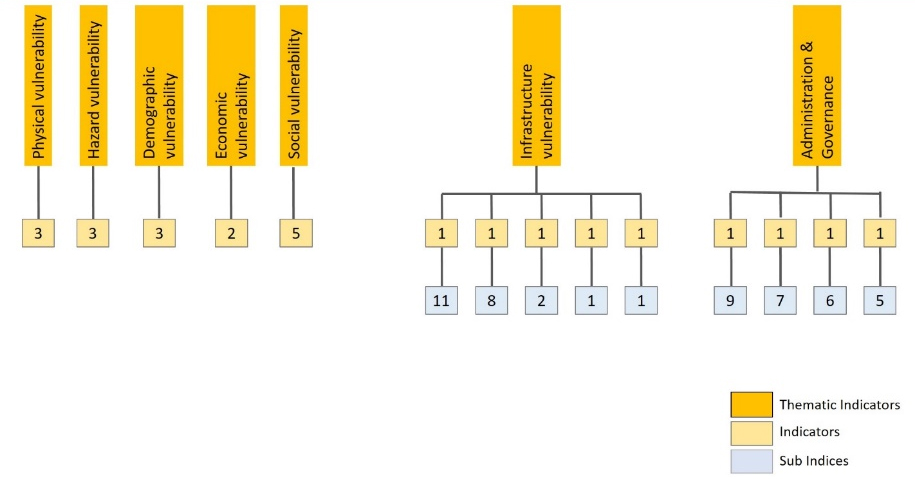Duration: October 2017- September 2020 (Completed)
Supported by: Ministry of Environment, Forest and Climate Change (MoEFCC)
IRADe developed an Urban Climate Vulnerability Index (UVI) to assess and understand climate vulnerabilities and associated risks. UVI was developed for the cities of Srinagar, Shillong, Chennai, Mumbai, Bengaluru & Delhi. The cities were selected on the basis of geographical location, population and ecosystem types and vulnerability to the climate induced hazards.
The climate vulnerability assessment framework covers seven thematic indicators- Physical, hazard, social, demographic, economic, infrastructure and administration vulnerabilities and seventy sub indicators and indices lying under the respective thematic heads. The prevailing vulnerability and preparedness of a specific city is a weighted aggregation of sub-indicators which were quantified, normalized and aggregated to obtain composite

vulnerability indices of seven thematic indicators. The final climate vulnerability score is calculated for six cities and a consolidated climate vulnerability score card has been prepared comparing the vulnerabilities of each city.
City specific recommendations for reducing the hazard vulnerability were made. The urban climate vulnerability index so devised, can serve as a decision support system to the Government of India for formulating adaptation and mitigation strategies for Indian cities.

The report was submitted to the Ministry of Environment, Forests and Climate Change (MoEFCC). A request for developing Urban climate vulnerability index for the Ahmedabad city and dissemination of the project results through a national workshop was considered favourably by MoEFCC.
The work on the UVI profile of Ahmedabad city was initiated and the collection of secondary data through numerous available published sources was completed. The process of finalizing the vulnerability score for the City is in process. A National Level workshop involving relevant stakeholders was postponed due to the COVID 19 pandemi